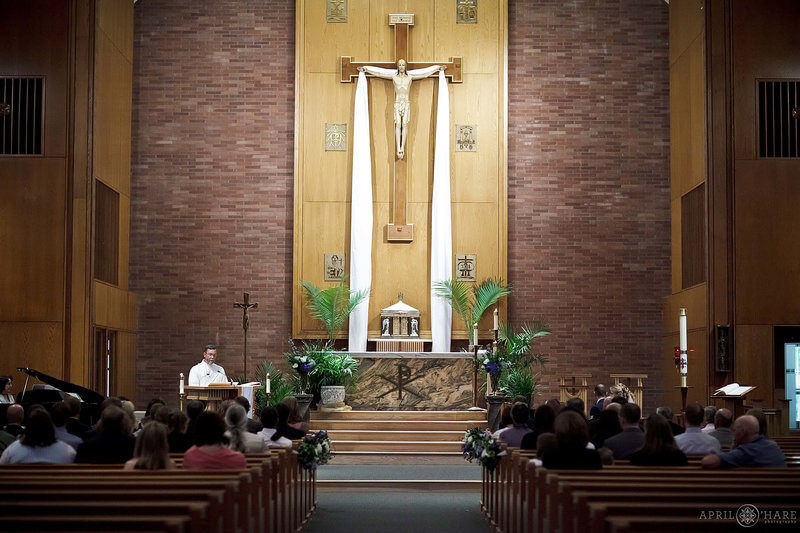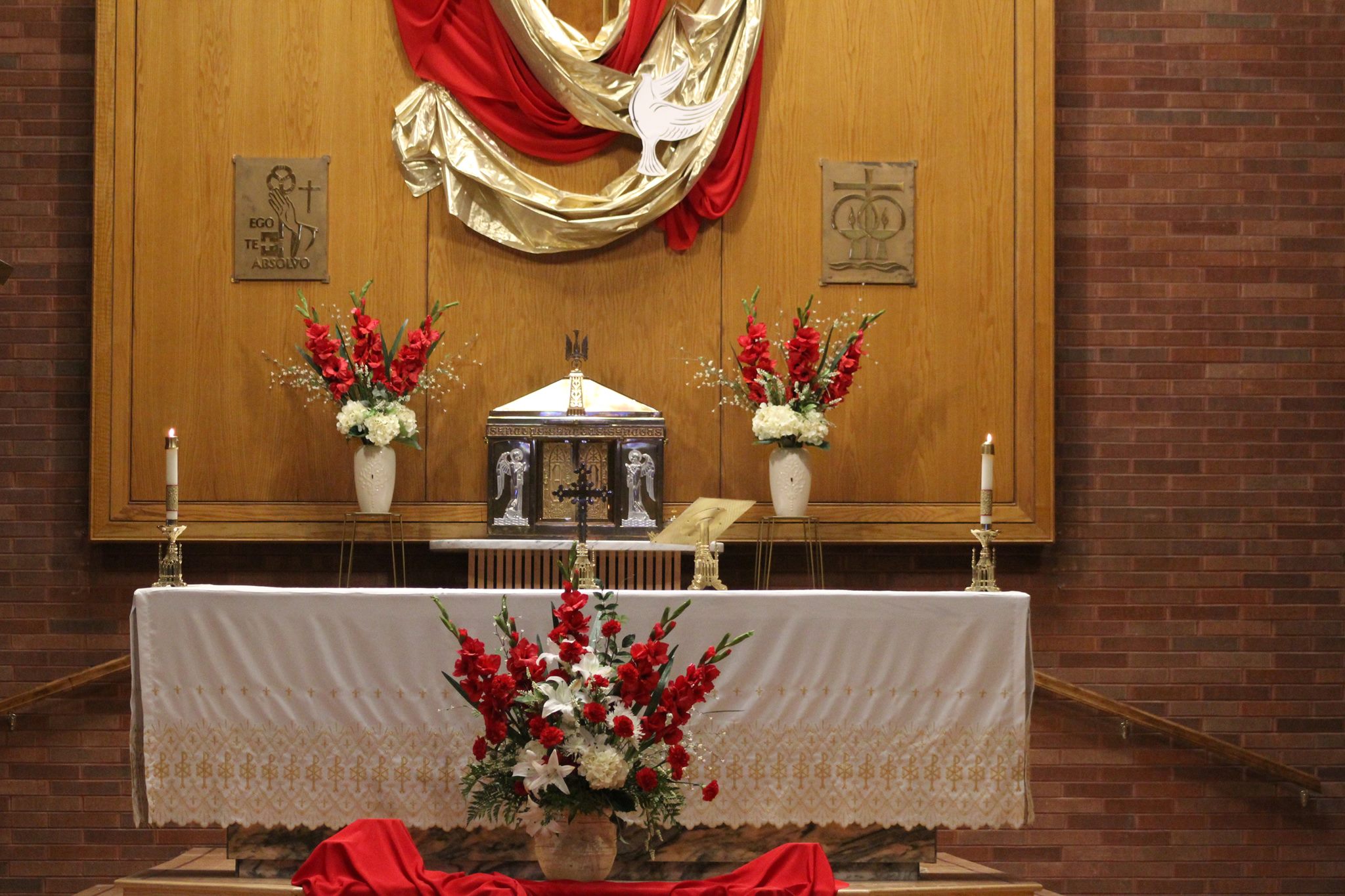Feast of St. Elizabeth, mother of John the Baptist
St. John the Baptist church, Longmont, Colorado
Readings at MassLiturgical Colour: White
My duty is to bring the Good News from God to the pagansMy brothers, I am quite certain that you are full of good intentions, perfectly well instructed and able to advise each other. The reason why I have written to you, and put some things rather strongly, is to refresh your memories, since God has given me this special position. He has appointed me as a priest of Jesus Christ, and I am to carry out my priestly duty by bringing the Good News from God to the pagans, and so make them acceptable as an offering, made holy by the Holy Spirit. I think I have some reason to be proud of what I, in union with Christ Jesus, have been able to do for God. What I am presuming to speak of, of course, is only what Christ himself has done to win the allegiance of the pagans, using what I have said and done by the power of signs and wonders, by the power of the Holy Spirit. Thus all the way along, from Jerusalem to Illyricum, I have preached Christ’s Good News to the utmost of my capacity. I have always, however, made it an unbroken rule never to preach where Christ’s name has already been heard. The reason for that was that I had no wish to build on other men’s foundations; on the contrary, my chief concern has been to fulfil the text: Those who have never been told about him will see him, and those who have never heard about him will understand.
The Lord has shown his salvation to the nations. Sing a new song to the Lord for he has worked wonders. His right hand and his holy arm have brought salvation. The Lord has shown his salvation to the nations. The Lord has made known his salvation; has shown his justice to the nations. He has remembered his truth and love for the house of Israel. The Lord has shown his salvation to the nations. All the ends of the earth have seen the salvation of our God. Shout to the Lord, all the earth, ring out your joy. The Lord has shown his salvation to the nations.
Alleluia, alleluia! God in Christ was reconciling the world to himself, and he has entrusted to us the news that they are reconciled. Alleluia!
Alleluia, alleluia! Whenever anyone obeys what Christ has said, God’s love comes to perfection in him. Alleluia!
The master praised the dishonest servantJesus said to his disciples: ‘There was a rich man and he had a steward denounced to him for being wasteful with his property. He called for the man and said, “What is this I hear about you? Draw me up an account of your stewardship because you are not to be my steward any longer.” Then the steward said to himself, “Now that my master is taking the stewardship from me, what am I to do? Dig? I am not strong enough. Go begging? I should be too ashamed. Ah, I know what I will do to make sure that when I am dismissed from office there will be some to welcome me into their homes.” Then he called his master’s debtors one by one. To the first he said, “How much do you owe my master?” “One hundred measures of oil” was the reply. The steward said, “Here, take your bond; sit down straight away and write fifty.” To another he said, “And you, sir, how much do you owe?” “One hundred measures of wheat” was the reply. The steward said, “Here, take your bond and write eighty.” ‘The master praised the dishonest steward for his astuteness. For the children of this world are more astute in dealing with their own kind than are the children of light.’ The readings on this page are from the Jerusalem Bible, which is used at Mass in most of the English-speaking world. The New American Bible readings, which are used at Mass in the United States, are available in the Universalis apps, programs and downloads. |




